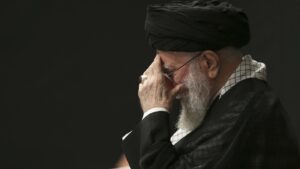A high-ranking Russian naval officer, Major General Mikhail Gudkov, has been killed in a Ukrainian strike in Russia’s Kursk region, confirmed Oleg Kozhemyako, governor of Russia’s Primorsky Krai, on July 3. Gudkov, who served as the deputy commander of the Russian Navy, met his end in the border district of Korenevo during a Ukrainian attack on a Russian command post.
The announcement comes as tensions continue to simmer between Russia and Ukraine, with the Kursk Oblast, bordering Ukraine, being a focal point of military engagements. Gudkov was appointed deputy commander-in-chief of the Russian Navy in March 2025, following a distinguished career that included leading the 155th Separate Marine Brigade, a unit actively involved in combat operations against Ukraine.
According to Kozhemyako, the strike also claimed the lives of several other Russian service members, including army officer Nariman Shikhaliyev. As of yet, Ukrainian officials have not commented on these reports.
Background of the Conflict
This development follows a series of cross-border incursions, notably the large-scale Ukrainian incursion into Russia’s Kursk Oblast in August 2024. This marked the first significant invasion of Russian territory by foreign troops since World War II. The incursion aimed to disrupt a planned Russian offensive targeting Ukraine’s Sumy Oblast and to alleviate pressure on the Donetsk front.
Since the incursion, Ukraine claims to have inflicted 63,402 Russian troop casualties in the oblast, including 25,625 killed and 971 captured. They also report the destruction or damage of over 5,664 pieces of Russian military equipment.
Russia managed to reclaim most of the lost territory during a renewed offensive in March 2025, bolstered by North Korean troops, highlighting the international dimensions of the conflict.
Implications of Gudkov’s Death
The death of Major General Gudkov represents a significant loss for the Russian military hierarchy, potentially impacting the strategic operations of the Russian Navy. His leadership in the 155th Separate Marine Brigade had been instrumental in several key operations, and his absence may necessitate a strategic reassessment by Russian military planners.
Meanwhile, the ongoing conflict in the region continues to draw international attention, with various global powers monitoring the situation closely. The involvement of North Korean troops in support of Russian efforts underscores the geopolitical complexities surrounding the conflict.
Expert Opinions and Historical Context
Military analysts suggest that the death of a high-ranking officer like Gudkov could have both immediate and long-term effects on Russian military morale and operational capabilities. As Dr. Ivan Petrov, a military strategist at the Moscow Institute of International Relations, notes, “The loss of key leaders in wartime can disrupt command structures and slow down decision-making processes.”
Historically, the region has been a flashpoint for conflict, with the Kursk Oblast’s strategic location making it a critical area for military operations. The current hostilities echo past tensions, although the scale and international involvement are unprecedented in recent history.
Looking Ahead
As the situation develops, both Russia and Ukraine are likely to continue their military engagements, with potential implications for broader regional stability. The international community remains watchful, with diplomatic efforts ongoing to de-escalate tensions and find a peaceful resolution.
The death of Major General Gudkov may serve as a catalyst for further military actions or diplomatic negotiations, depending on the responses from both sides. As the conflict evolves, the world watches closely, aware that the outcomes could reshape the geopolitical landscape in Eastern Europe.







